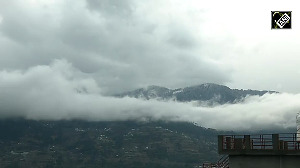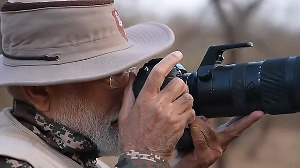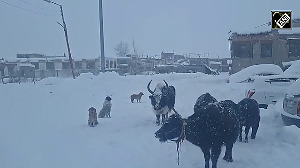The first explosion took place at 6:50 am in front of the ticket counters at the Kamalapur railway station in Dhaka. At that time, the communications secretary of the government, Dr Mahbubur Rahman, was attending the inauguration of Rail Service Week 2007 at the railway station auditorium. There were no casualties. Explosives experts seized two pencil batteries, pieces of a bag in which the bomb was probably kept and torn papers from the spot.
This was followed by an explosion on the Chittagong railway station platform at 7:10 am injuring a rickshaw-puller. According to the local police, an unidentified person gave a bag to a woman beggar, and left hastily saying it contained some breakfast. She sought the help of the rickshaw-puller to open the bag and take out the breakfast. As he tried to do so, he was injured by a minor explosion. The police recovered some Scotch tape, the broken remains of a clock and torn papers from the scene.
The third explosion took place at 7:20 am on the platform of the Sylhet railway station. There were no casualties. The explosive device had apparently been kept under a fixed steel chair. Some torn papers and a small residue of explosives were found at the blast spot.
Round aluminium plates covered with old newspapers were found near the blast sites at Dhaka and Sylhet, but not at Chittagong. The plates carried the following inscription: 'The Kadiyanis (Ahmediyas) and NGOs prepare for death. It is haram (prohibited) to work in NGOs and having relation with the Kadiyanis. All must quit NGO jobs by May 10, all Kadiyanis must recognise Prophet Mohammad as the last and best prophet and if you fail to do it before the aforesaid time, your death is a must -- Zadid al Qaeda, Bangladesh.'
Zadid Al Qaeda can be translated either as 'New Al Qaeda' or as 'Cell of Al Qaeda'.
The fact that the three blasts took place in a co-ordinated manner in three different cities -- all in railway property -- would rule out the possibility of these explosions being the work of individual elements with no organisational affiliation. The initial indications are that the blasts were planned and carried out by an organisation in order to draw attention to its capability to organise such explosions, while at the same time taking care not to cause human casualties or serious property damage.
The message left behind is Islamic. The warning is addressed not to the government or the army, which is seen as the real power behind the present caretaker government headed by Dr Fakhruddin Ahmed, but to the Ahmediyas and the staff of non-governmental organisations, NGOs. The Ahmediyas and the NGOs -- particularly the foreign NGOS -- have been the targets of all fundamentalist and pro-Al Qaeda jihadi organisations of Bangladesh for many years. The demands are, therefore, not new.
The messages mention May 10, 2007, as the deadline by which these two demands should be met. The initial 120 days of the State of Emergency proclaimed on January 11, 2007, expire on May 10 and it is widely expected that the army, which is back-seat driving the present government with a civilian facade, would have it extended for which there is a provision in the constitution of the country. It is not clear whether the perpetrators of the blasts chose the May 10 deadline having this in mind or whether the two are not connected.
The present rulers of the country-- a group of civilians orchestrated by the army from behind the scene -- have been making overtures not only to the US and the European Union countries, but also to India of their goodwill towards them and of their intention to hold the general election before the end of next year after acting against widespread political corruption and preparing the ground for a genuinely free and fair election.
To reassure the US and other Western countries of their determination to act firmly against jihadi terrorist elements, they carried out on March 29, 2007, the execution of six senior leaders of the Jamiat-ul-Mujahideen and groups linked to it, who were arrested and tried by the previous government headed by Begum Khalida Zia, in accordance with the sentence passed by the courts which tried them.
By having these executions carried out even at the risk of incurring the wrath of the jihadi terrorists, the present rulers have sought to convince the international community of their determination to put down jihadi groups. When the US and the UK expressed their concern over the attempts of the present rulers to exclude Sheikh Hasina and Begum Khalida Zia from the political mainstream by having them exiled, they immediately reversed their decision to force them into exile.
Their overtures to India have been in the form of exhibiting a seemingly more open mind than the political leadership on various issues of interest and concern to India such as Indian investments in Bangladesh, the construction through Bangladesh territory of the proposed gas pipeline from Myanmar, the sanctuaries enjoyed by anti-India terrorists in Bangladesh territory etc.
It is therefore, reasonable to apprehend that these overtures towards the West and India -- if they are genuine -- could anger the fundamentalists and jihadis.
In fact, the present army-driven government apprehended that there could be reprisal strikes by the JUM and others in retaliation for the execution of their leaders. The JUM still has about 5,000 well-trained and well-motivated cadres, who have all gone underground since the Khalida Zia government arrested their leaders following the over 400 explosions organised by the JUM in different parts of the country on August 17,2005.
The command and control of the JUM has been disrupted, but its motivation and determination remain strong. A new leadership is still to emerge to re-organise the command and control.
One organisation, against which no action has been taken either by the previous government or the present rulers, is the Harkat-ul-Jihad-al-Islami. It is a branch of the HUJI of Pakistan. It supports the pan-Islamic agenda of Al Qaeda and has many pre-9/11 veterans of Afghan vintage amongst its senior cadres.
It is a member of the International Islamic Front formed by Osama bin Laden in 1998. It has many sympathisers in the lower and middle levels of the Bangladesh armed forces. It has so far avoided any major acts of jihadi terrorism in Bangladesh. Its activities are confined to assisting jihadi terrorists in southern Thailand and spreading its sleeper cells in India -- particularly in India's north-east and in southern India.
The HUJI is viewed by the Bangladesh army and military intelligence as a strategic weapon of potential use against India and, hence, has been spared of any action against it. There are no indications so far that the May 1 explosions might have been carried out by it. Unlikely.
Though there are many pro-Al Qaeda elements and groups in Bangladesh, none of them operate under the name Al Qaeda. Presently, the needle of suspicion for the May 1 blasts points to the cadres of the JUM. While carrying out the explosions, they have tried to avoid drawing suspicion on them by using the name of Al Qaeda. They have also avoided any claims or language which might create an impression that the blasts were in reprisal for the execution of their leaders. Their present objective seems to be to keep up the morale of the cadres till a new command and control comes into being.






 © 2025
© 2025